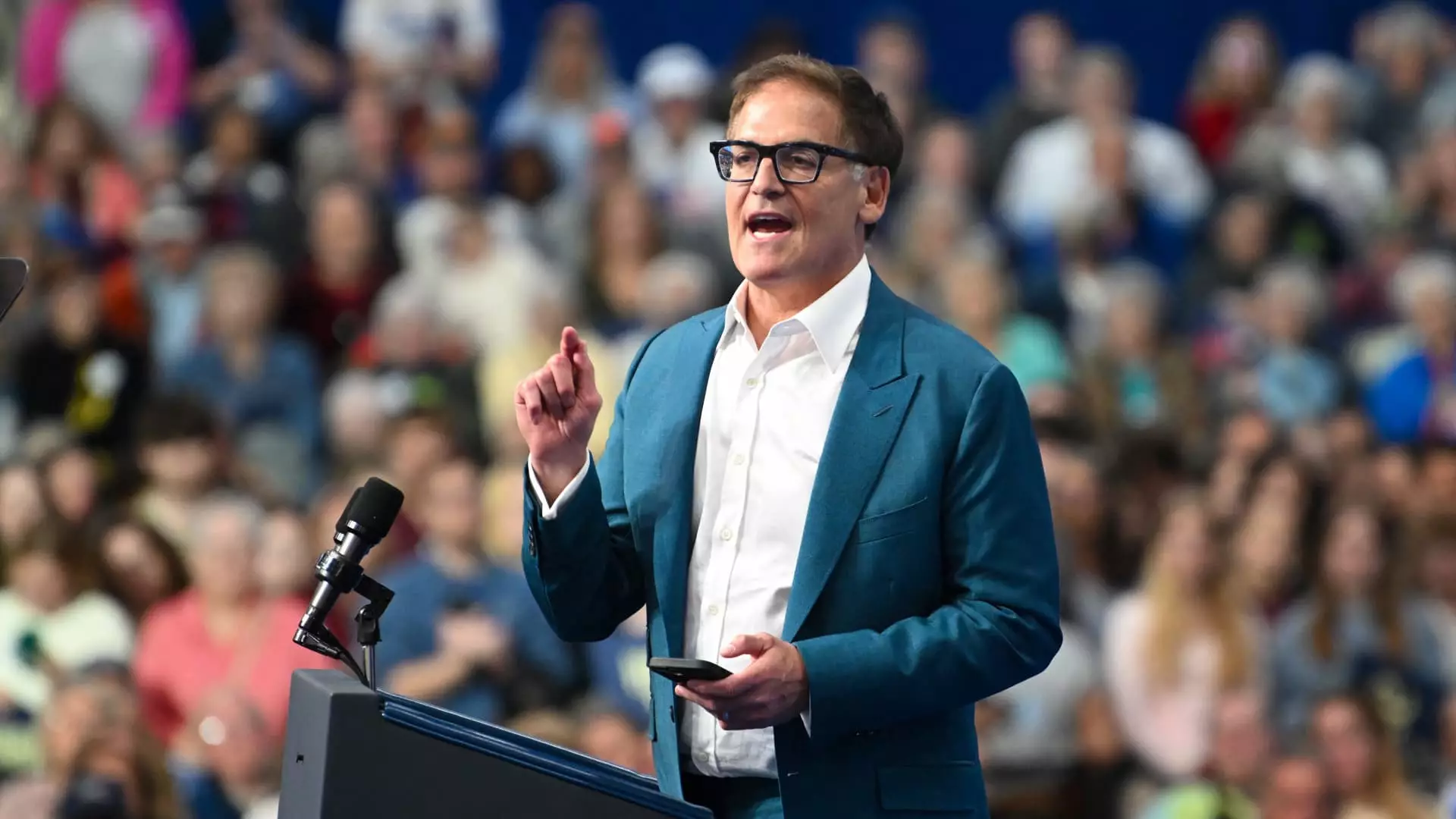Billionaire entrepreneur Mark Cuban has made headlines for his vocal support of Vice President Kamala Harris in the upcoming presidential election against former President Donald Trump. Despite this engagement, Cuban emphatically distanced himself from any aspirations of holding a government position, making it clear that he finds greater satisfaction in the disruptive nature of entrepreneurship rather than traditional politics. This assertion highlights an intriguing tension between his public advocacy for political change and his commitment to remain outside the political establishment.
Stepping Back from Political Ambitions
In an interview on ABC’s “This Week,” Cuban stated, “I have no interest in being a politician of any type,” which seems to contradict some of his earlier comments that hinted at a desire for a governmental role, potentially as a chairperson for the Securities and Exchange Commission (SEC). Just a month prior, he had suggested to Harris’s team that his name be put forward for such a position, expressing strong criticism towards the current SEC Chair, Gary Gensler. This back-and-forth exemplifies a common dilemma in the political realm, where ambition and action can often appear dissonant.
Cuban’s denouncement of political office roles underscores a much larger narrative about how successful entrepreneurs perceive public service. For many, the allure of political engagement comes with the potential for direct impact and influence, yet it is apparent that Cuban views entrepreneurship as a more suitable platform to instigate change. His comments signal a preference for remaining independent, wielding influence as an outsider rather than being tethered by the constraints of governmental roles.
In the Arena: Cuban’s Robust Campaign Support
Despite his reluctance to join the political fray in an official capacity, Cuban’s involvement in Harris’s campaign has been significant. While he has not financially supported her campaign, his vocal presence at rallies and interviews showcases a commitment to her political vision. Cuban is leveraging his platform not only to advocate for Harris but also to present his views on key policy areas, particularly corporate regulation and antitrust measures.
His recent remarks suggest that Cuban envisions a Harris administration centered around transformative economic policies. Notably, Cuban has called for the dismissal of Federal Trade Commission Chair Lina Khan, a move that reflects his belief that her strategies for managing corporate power are lacking efficacy. As a vocal supporter of Harris, Cuban appears dedicated to framing her presidency around a more robust, business-friendly approach to governance, advocating for changes he deems essential for economic revitalization.
Mark Cuban’s assertions illuminate a complex relationship between entrepreneurship and political advocacy. His reluctance to embrace a formal role within the government reinforces a notion that some entrepreneurs prefer to disrupt from the outside rather than conform to the traditional political structure. This dynamic speaks to a larger trend where influential business leaders, like Cuban, leverage their backgrounds and expertise to impact political discourse without sacrificing their independence or adopting a political identity. As the political landscape evolves, Cuban’s approach reflects a strategy that prioritizes personal values and entrepreneurial tenets over conventional aspirations for power.

